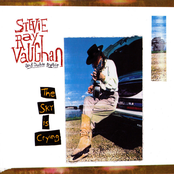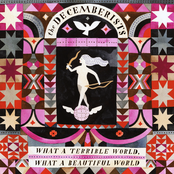Following her comments here, reader and local history enthusiast Ann Cross recently somewhat gamely took on a private challenge I made to her, where I suggested that she might like to write up her work on her family and their history at Walsall Wood’s Royal Exchange pub.
Ann has took to my idea with no little gusto and crafted a fine piece. It dovetails nicely into David Evans’ work on the censuses of the period, and it’s nice to see all this interconnected history coming out in such a personal, coherent way. I thank Ann most profusely for sharing, and look forward to the next instalment!
Ann wrote in her accompanying email:
Hi Bob,
Here is the first instalment, up to 1900. Please feel free to make any changes if need be.
I am not too used to attachments, so please let me know if it is not complete!
There should be two photographs, one page of words and one page with the descriptions of the two photos.
My next bit will probably be shorter, 1900 to 1961, with some more photos.
Thanks for your help,
Best wishes Ann.
As you can see Ann, I’ve needed to do very little to your text, and I welcome your work whenever you feel the urge to write. Nice job, thank you.

William Cross, extreme left, proudly shows off his new sign at The Royal Exchange, the license being transferred to him on January 8th of that year. Good times! Image generously supplied by Ann Cross.
The first confirmed date relating to the Royal Exchange I have is 1845 when Richard Jackson is listed in the Post Office/Kelly directory as publican there. He was married to Maria and this is shown on the 1851 census where he is listed on Turnpike Road as victualler/miner. They had four daughters and two sons.
Also living there was his mother-in-law Mary Inger (sp?) age 66 who I think was a midwife (very hard to read in the census) and John Wright a lodger. Richard is also listed in the Robinsons 1851 Directory as a victualler, he died in 1854 age 44.
Maria his widow then became publican and this is confirmed in the Harrods directory of 1861 and the 1861 census where it is now called Walsall Wood Road and here she is head of the Royal Exchange. This was allowed because she was a widow.
Being a smart lady, she retained ownership of the pub until 1891 during which time both William Jackson and Richard Steadman were the publicans – these two I have yet to place precisely in the tree!

The Royal Exchange as it is today, as photographed by David Evans. When I featured this in the 1901 article, I speculated on whether the pub was original, and if so, how much remained. Comparing with the image, it is and it’s remarkably intact. Even the outhouse to the side. Image by David Evans.
On 4th July 1872 Isabella daughter of Maria and Richard married William Cross in Rushall and he became the publican. Their daughter Sarah was born 15th April 1875. Sadly William died a few months before my grandfather was born on 9th September 1877.
This meant that Isabella became the publican, as shown in the 1880 Kelly’s Directory and the 1881 census. Her mother Maria lived with her as well as other family members listed as boarders and servants.
However, when my grandfather was six in 1883 Isabella married again and James Welsh became his stepfather. Although married women’s rights were much improved by then, he became the licensee as shown in the 1891 census on Lichfield Road. Perhaps it was the traditional thing to do.
Maria, still the owner, may have regretted it as he was fined in 1893 and 1894 for permitting riotous behaviour and drunkenness! The eventful Christmas in 1892 which was mentioned by David Evans from Pedro may well have resulted in the £5 fine plus costs on the 16 th January 1893.
The 1891 census also shows us ‘back of’ the Royal Exchange and one of the three families living there was Richard Jackson, his wife Elizabeth, three sons and two daughters. Richard was the brother of Isabella and uncle to my grandfather. He was still living there in the 1901 census.
In 1891 Maria sold the Royal Exchange to the Lichfield Brewery Co. Ltd and the family became tenants, with James Welsh still the licensee. They now paid a rent and were tied in to selling only Lichfield Brewery beers.
Tragedy struck in 1895 when my grandfather was 18 years old. There was a flu epidemic that year (nothing unusual in that decade) and on 11th February his mother Isabella died age 48. On 18th February his sister Sarah died age 19 and in July his grandmother Maria died age 84.
His stepfather James Welsh died 20 th December 1899 age 48.
My grandfather became the licensee on 8 th January 1900 age 23.
The picture shows my grandfather extreme left of group proudly showing off the newly painted sign above the door in 1900. If you compare this with the picture David kindly showed, you can see the building is still recognisable.
The other picture shows my grandfather on the left posing for a photograph in Blackpool, the premier seaside resort around that time. The studio belonged to WJ Gregson and was just off the promenade in Talbot Road. It would be great if someone could identify his friend for me.


 RSS - Posts
RSS - Posts









What a lovely piece!
Nice. I’d always thought it was an old building under the 60s Ansells makeover: from the rear it’s a bit more obvious.
Alice Painter, aged 17, household servant at The Royal Exchange in 1901, was sister-in-law to my grandmother’s cousin, Rosehannah, who married Alice’s much older brother, Job. It’s wonderful to see the photograph of the Royal Exchange as it was when it was Alice’s place of work, and, no doubt, drinking establishment of choice for all my other W.W. forebears – it looks such a smart place. The roof looks new.
I remember Job Painter, as an elderly man in the 1930’s who was the custodian of the local playing fields. These were surrounded by a stout iron fence with a lockable gate which was locked at 8pm. These railings were removed at the outset of the war as part of the war effort. Job lived in Lichfield Road, adjacent to the playing fields. Rosehannah later moved to the Vigo end of Salters Road, still very active throughout the war years.
How lovely to read that information, David. Thank you so much. Some kind person has shared a photograph of Rosehannah and and also one of Job on “ancestry”. I can certainly see family resemblance between my Aunt Mary and Rosehannah. They had many children. Are there still Painters in Walsall Wood?
Hi Bob
a huge thankyou to Ann, please!
kind regards
David
Thank you Ann and Bob for a lovely and very interesting article. Love the old photo’s. Look forward to the next part.
Thanks to everyone for their kind comments, and thanks Bob for your encouragement!
Great to find a connection with Alice Painter and staffordshirebred.
In 1895 there was a national extensive Influenza epidemic, but at first sight the local papers only report the problems in London.
In March 1895, however, the Local Government Board issued a memorandum recommending the adoption of the following precautions wherever they can be carried out: –
1. The sick should be separated from the healthy. This is especially important in the case of first attacks in a locality or a household.
2. The sputa of the sick should, especially in the acute stage of the disease, be received into vessels containing disinfectants. Infected articles and rooms should be cleansed and disinfected.
3. When influenza threatens, unnecessary assemblages of persons should be avoided.
4. Buildings and rooms in which many people necessarily congregate should be efficiently aerated and cleansed during the intervals of occupation.
There is no routine treatment for influenza except bed. In all cases bed is advisable, because of the danger of lung complications, and in mild ones it is sufficient. Severer ones must be treated according to the symptoms. Quinine has been much used. Modern “anti-pyretic” drugs have also been extensively employed, and when applied with discretion they may be useful, but patients are not advised to prescribe them for themselves.
Great, lovely bit of local history, thanks to Ann Cross and Bob.
Just for the record…
“W.J. Gregson & Co. Photographers, 92 Talbot Road, Blackpool.
Pingback: The secret army | BrownhillsBob's Brownhills Blog
Thank you Anne, waiting eagerly for the next instalment.
Peter
memories of me celebrating my 18th birthday in 1960 in the exchange Anne, I remember the look
on your dads face when he asked who,s birthday is it when i said mine he said you b***** youve been drinking here for the last four years . still think of you and rosemary xxxxxx love alvin
I don’t remember your birthday Alvin, but I do remember Ida the maid and the german prisoner of war in “See How They Run” at the Church Hall. Happy Days!!
Pingback: Fair exchange | BrownhillsBob's Brownhills Blog
Pingback: Seeing the Wood for the trees | BrownhillsBob's Brownhills Blog
Pingback: Standard bearer | BrownhillsBob's Brownhills Blog
Pingback: Box clever? | BrownhillsBob's Brownhills Blog
Pingback: Continuing the Exchange | BrownhillsBob's Brownhills Blog
Pingback: A foreign Exchange | BrownhillsBob's Brownhills Blog